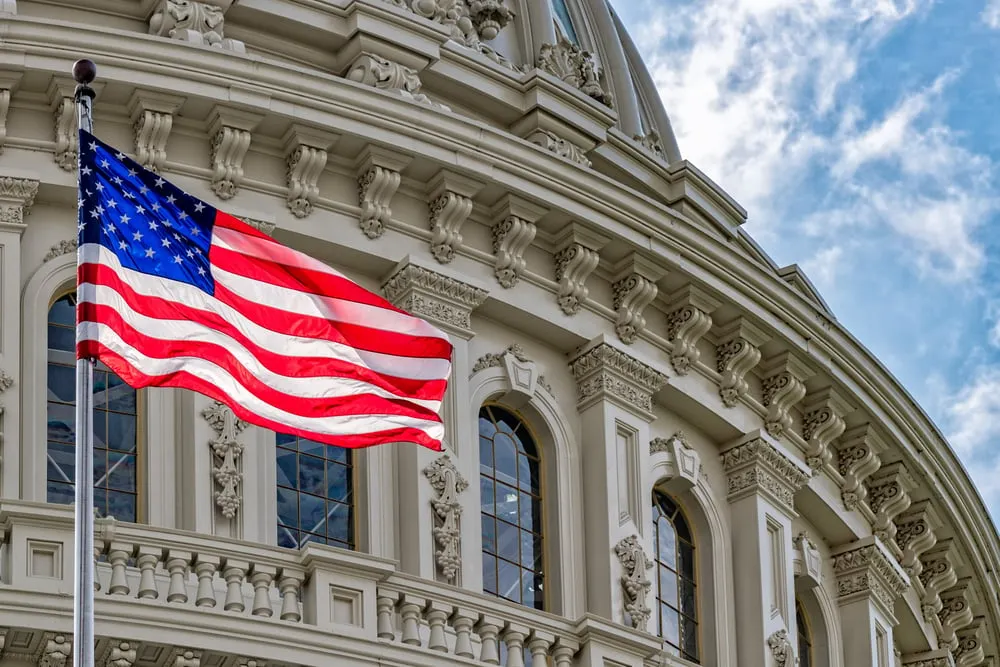A bipartisan group of representatives introduced their version of the NO FAKES Act—to “Nurture Originals, Foster Art, and Keep Entertainment Safe”—in the U.S. House of Representatives on Thursday.
The legislation, sparked by concerns over AI-generated deepfakes, was introduced by a bipartisan coalition that includes Reps. María Elvira Salazar (R-FL), Madeleine Dean (D-PA), Nathaniel Moran (R-TX), Adam Schiff (D-CA), Rob Wittman (R-VA), and Joe Morelle (D-NY).
“AI abuse threatens the ability of Americans to express themselves publicly, both online and in person,” Rep. Salazar said in a statement. “The NO FAKES Act will strengthen federal protections for your individual right to your voice and likeness and protect our ability to express ourselves creatively for the world to see.”
The No Fakes Act was first proposed in October of last year by a bipartisan group of U.S. senators, including Sens. Marsha Blackburn (R-TN), Thom Tillis (R-NC), Amy Klobuchar (D-MN), and Chris Coons (D-DE). In July, the NO FAKES Act was introduced to the U.S. Senate.
The NO FAKES Act will establish federal intellectual property rights for individuals and their families over their voice and likeness. It will allow people to take legal action against those who create, post, or profit from unauthorized digital copies of them. The act will also protect media platforms from liability if they quickly remove infringing content.
If the No Fakes Act becomes law, anyone who creates an AI-generated song, photo, or video deepfake without permission could be fined $5,000 for each violation. Additionally, violators would be liable for any extra damages suffered by the affected person due to the violation.
“The NO FAKES Act will protect innovation while safeguarding the rights, contributions, and livelihoods of all creators,” Rep. Schiff added. “I am proud to join in introducing this important bipartisan legislation that will establish a national standard to protect creators while supporting exciting, new AI technologies.”
If passed, the NO FAKES Act will take effect on January 2, 2025.
Members of the entertainment industry cheered the bill's introduction in the U.S. House.
“Alignment with the Senate on this bill represents an important step in the bipartisan, bicameral effort to establish a federal right of publicity that will protect artists, creators, and all Americans in this new era of technology," said Harvey Mason Jr., CEO of the Recording Academy, in a statement.
“With identical bills now before both the House and Senate and with robust bipartisan support, Congress must act expeditiously to safeguard everyone in this age of rapidly advancing technological innovation,” SAG-AFTRA National Executive Director & Chief Negotiator Duncan Crabtree-Ireland added.
“The Senate and House are now aligned on a bipartisan, broadly supported approach that embraces responsible innovation while tackling harmful AI deepfakes with ethical, human-first safeguards,” Recording Industry Association of America chairman and CEO Mitch Glazier wrote on X (aka Twitter).
Daily Debrief Newsletter
Start every day with the top news stories right now, plus original features, a podcast, videos and more.

